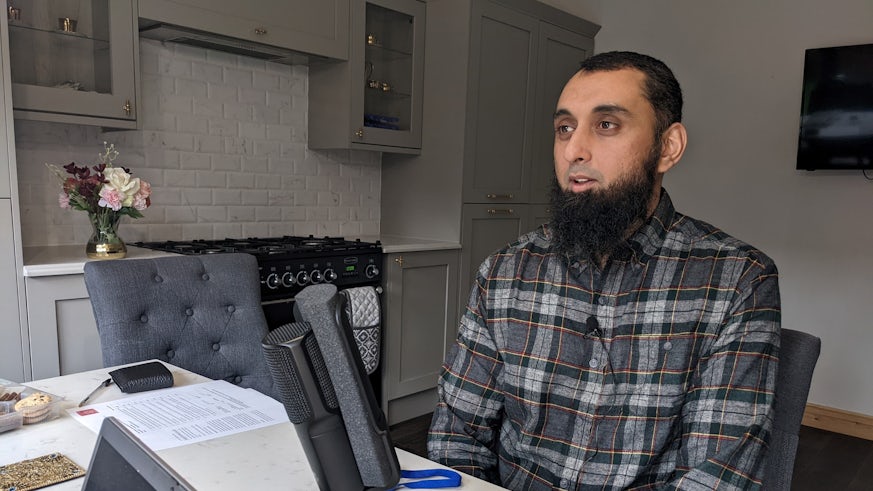Understanding Muslim Mental Health
16 May 2022

Muslims have shared their experiences of living with mental health problems as part of a training course exploring how those in the faith could be better supported.
The free online programme, developed by Cardiff University’s Centre for the Study of Islam in the UK, is aimed at a broad range of health and social care practitioners, including teachers, police officers, social workers and religious pastoral care providers like imams.
Mental health issues affect Muslims in Britain more than other faith communities, yet they are less likely to access formal support for these problems – and when they do, their rates of improvement are lower.
As well as people with lived experiences of mental health problems, leading experts and practitioners in the field have also contributed to the course, which launches on online platform FutureLearn on Monday (May 16).
Course contributor Suhayl Patel, a mental health practitioner for Beacon Counselling Trust, uses his experience of gambling addiction to help others going through similar problems. He believes there is a lot of stigma associated with mental health problems among Muslim communities.
The 38-year-old from Oldham, who has shared his story with course participants, said: “I grew up in a very orthodox community. I gambled as an escape. I knew acutely what I was doing was wrong; I would give it up for long periods but then fall back into it. My family weren’t aware I was gambling. As my addiction progressed, I became more reckless.
“On the one side I wanted to be a really good Muslim but at the same time I had this addiction which I didn’t really recognise at the time. I experienced an overwhelming amount of shame.”
Another contributor to the course was formally diagnosed with depression and anxiety after more than a year of trying to tackle it on her own. She accessed support from her GP and Imam, as well as seeking help from family and friends.
She said: “Having a diagnosis brings it to reality. Up until then, my faith came into play if I was sad or worried. After my diagnosis it almost sent me into a darker place because I thought, nothing has worked. I really felt something was wrong with me because I couldn’t get through it on my own.”

Project lead Dr Asma Khan, based at Cardiff University’s Centre for the Study of Islam in the UK, said a greater understanding is needed about how Muslims live with mental health problems.
She said: “Even before the pandemic, Muslims experiencing mental ill-health were already at a disadvantage in terms of accessing support services and their recovery. We know that the ways in which Muslims experience and understand mental ill-health can be influenced by their particular religious and spiritual beliefs and that stigma surrounding these issues has a disproportionate effect for certain ethnic and religious minority groups.
“That’s why I’m particularly grateful to the people who have given their first-hand experiences for the benefit of course participants, sharing their accounts as examples of ways in which Muslims experience mental health problems in distinctive ways.

“We hope the programme will help practitioners understand Muslims’ spiritual worldview and how this impacts their daily lives, as well as opening up a new dialogue on the challenges they face. This is key if we are to improve outcomes for those in the faith who are experiencing difficult times.”
Shaykh Dr Asim Yusuf, Islamic Scholar and Consultant Psychiatrist who has also given input on the development of the course, said: “This programme is designed so as to enable mental health practitioners, religious figures involved in pastoral care, as well as service users and their families, to enrich their understanding in the ways in which Muslims experience mental health and illness.
“The aim, ultimately, is to upskill them towards facilitating recovery in a holistic and culturally appropriate manner, bringing to bear the rich resources of modern psychotherapy and elements of classical religious wisdom, so as to attain the best of both worlds in which such service users live.
“I hope that it will be the first of many similar initiatives, both in terms of other faiths and cultures, but also in terms of further development of Muslim mental health resources. I would also like to thank Cardiff University, the Centre for the Study of Islam in the UK and FutureLearn for their generosity and support in its development.”

To register for the course, Understanding Muslim Mental Health, click here.


